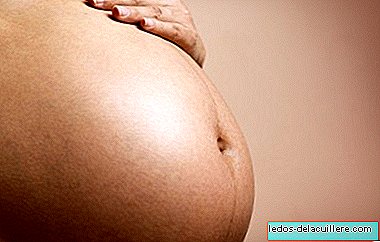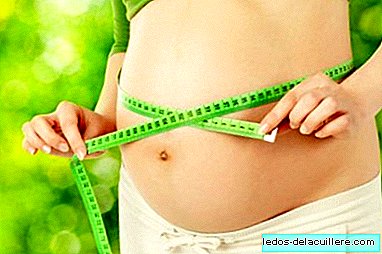
If you are looking for pregnancy or are already waiting for a baby, your gynecologist will have recommended some nutritional supplements to guarantee all the necessary contributions to the organism and that the baby grows healthy. But it is not always easy to know why we need these supplements (if we need it), the recommended amounts, if there are special cases ...
To clear these and many other doubts, in 2014 the World Health Organization established a guideline entitled "Daily administration of iron and folic acid supplements in pregnancy", where everything related to these nutrients and the different cases are reported.
This guideline offers worldwide recommendations, based on scientific evidence, on the daily administration of iron and folic acid supplements as a public health intervention aimed at improving pregnancy outcomes and reducing maternal anemia during pregnancy.
The union of efforts to be able to apply this guideline in the world will contribute to the achievement of certain Millennium Development Goals, in particular, the reduction of infant mortality and the improvement of maternal health. This is a very interesting document and we hope it has the desired effect.
In summary, we can say that the most recent studies have shown that the administration of iron and folic acid supplements is associated with a lower risk of iron deficiency and anemia in pregnant women.
WHO recommends daily administration of iron and folic acid by mouth as part of prenatal care to reduce the risks of low birth weight, maternal anemia and iron deficiency.
What we should know about folic acid in pregnancy
Folic acid is important for a healthy pregnancy. In pregnancy, the need for folic acid increases due to the rapid cell division that occurs in the fetus and the higher level of urine losses.
Specifically, the use of folates before conception and in the first months of pregnancy can reduce the risk of neural tube defects in the newborn, cardiac ventricular septum defects, conotruncal heart defects, fetal urinary malformations, hydranencephaly and lip cleft
WHO recommends 400 μg (0.4 mg) of folic acid daily since 1998, after the publication of several studies that supported the use of this nutrient in the periconceptional period to prevent neural tube defects. It is recalled that if this supplement begins to be administered after the first trimester of pregnancy, it will not help prevent congenital anomalies.
This is because the neural tube closes before the 28th day of pregnancy (when sometimes pregnancy has not yet been detected). Although it will contribute, however, to other aspects of maternal and fetal health.
Women who have developed a fetus or given birth to a child diagnosed with a neural tube defect should receive information about the risk of recurrence, as well as advice on the risk involved in the periconceptive administration of folic acid supplements, and must be offered high dose supplements (5 mg folic acid daily).
But, in summary, All women, from the moment they start trying to get pregnant until 12 weeks of gestation, should take folic acid supplements (400 μg folic acid daily).
What happens in developing countries? Here it can be difficult to implement this intervention in a generalized way, so it would be necessary to concentrate on the administration of folate and iron tablets to newlyweds in high-risk populations and to those with previous births with neural tube defects.

Iron in pregnancy
For its part, iron is important to ensure the supply of oxygen that the baby requires to grow healthy and keep anemia at bay during pregnancy, a disease that can cause complications.
WHO estimates that 41.8% of pregnant women worldwide suffer from anemia. It is assumed that at least half of the cases are from iron deficiency anemia.
Women who receive daily iron supplementation are less likely to give birth to children with low birth weight. No significant effect on premature birth or neonatal mortality has been observed. But the daily administration of iron supplements reduces by 70% the risk of maternal anemia at the end of pregnancy.
Some women iron supplements can cause certain digestive disorders. In women who consume iron supplements in large quantities, especially on an empty stomach, gastrointestinal disorders are common. These effects must be decisive for setting the maximum tolerable level of iron intake in each case.
The use of supplements with high doses of iron is usually accompanied by constipation and other gastrointestinal effects, such as nausea, vomiting and diarrhea, the frequency and severity of which depend on the amount of elemental iron released to the stomach.
The recommended amounts of iron are 30-60 mg of elemental iron (30 mg of elemental iron equals 150 mg of ferrous sulfate heptahydrate, 90 mg of ferrous fumarate or 250 mg of ferrous gluconate).
In environments where anemia in pregnant women constitutes a serious public health problem (with a percentage of 40% or more), a daily dose of elemental iron of 60 mg is preferable to a lower dose.
When a woman is diagnosed with anemia in a clinical center, iron (120 mg of elemental iron) and folic acid (400 μg, or 0.4 mg) supplements should be administered daily until the hemoglobin concentration rises to a value normal (2, 21). From there you can receive the recommended prenatal dose to prevent a relapse.
Within the observations, WHO points out that it is possible to formulate supplements for pregnancy that, in addition to iron and folic acid, include other vitamins and minerals according to the formulation suggested as a supplement with multiple micronutrients of the United Nations, in order to correct other micronutrient deficiencies that the mother may suffer. To avoid these deficiencies, a healthy and varied diet is essential.
Definitely, pregnant women should consume extra amounts of iron and folic acid to meet their own needs and also those of the growing fetus. The lack of iron and folic acid during pregnancy can negatively affect the mother's health, pregnancy and the development of the fetus.












